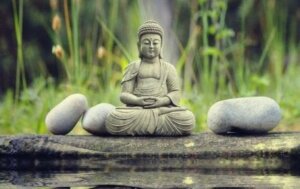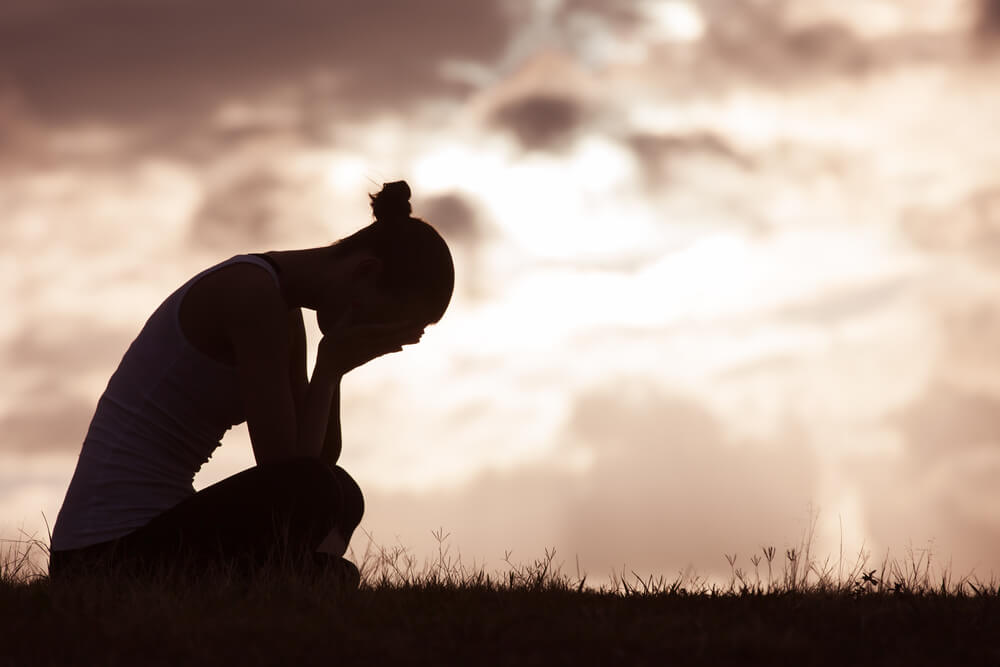Seven Sayings From Buddha To Change Your Life

People who use teaching and sayings from Buddha as a reference point for their lives tend to see Buddhism more as a philosophy of life than as a religion. That’s because there are few spiritual doctrines that are so captivating. In addition, few ancestral practices have generated so many individual transformations and instigated such positive changes of consciousness.
The reason Buddhism has so many followers is because of its simplicity. Its wise messages are transmitted in such a way that encourages you to improve your quality of life. From a psychological point of view, it can be said that its impact on your emotional well-being is immense. In fact, it not only encourages you to regulate your states of stress and anxiety, but it also favors your inner journey to self-knowledge and personal fulfillment.
“Silence is an empty space, space is the home of an awakened mind.”
-Buddha-
To benefit from the principles of Buddhism, you only need to open your heart and mind. To make a start, you can reflect on the following seven sayings from Buddha.
1. Pain and suffering aren’t the same
“Pain is inevitable, but suffering is optional.”
-Buddha-
Let’s think for a moment about the essence of this message. It’s quite possible that the first question you’ll ask is What’s the difference between pain and suffering? Well, first you must understand that pain is something that’s genuine and legitimate. Indeed, if you’re hurt you’ll feel pain. For example, if your partner leaves you, at the time, you’ll feel irreparable pain for their absence.
However, suffering refers to a negative emotional charge that you carry around with you for an excessive amount of time. For instance, the suffering you experience from the abandonment by your partner should only be for a limited time. In fact, if you extend it beyond that period, you’ll lose your quality of life.

You can only be harmed by what you give importance to. Therefore, to avoid useless suffering, you must take a step back, detach yourself emotionally, and see things from another perspective. Indeed, pain is something physical and inevitable, but suffering is a choice. It depends on you, your thoughts, and your emotions.
However, achieving this takes practice and time, but it’s worthwhile. As a guideline, consider the following saying from Buddha: “All that we are is the result of what we have thought: it is founded on our thoughts and it is made up of our thoughts”.
2. Learn to live in the present
“Rejoice because every place is here and every moment is now.”
-Buddha-
Your mind loves to feed on the past. It lives on nostalgia, for those things that couldn’t be. Another of its defects is in anticipating the future and worrying about certain things that haven’t even happened yet. This means you don’t live in the moment and your life passes you by without you even noticing. Buddhism suggests you focus on the here and now. Therefore, you must learn to be present and to enjoy each moment as if it were the only one.
3. Wholeness is in unity
“Take care of the exterior as much as the interior, because everything is one.”
-Buddha-
To find a true state of well-being, it’s essential that your mind and body are in balance. As you know, we live in a society that exalts physical appearance. A world that favors a disconnection from your inner world because what counts is appearance, not essence.
To regain unity, you need to change your focus and reflect every day on this saying from Buddha. Connect your body and soul, your skin and emotions, your body and brain, and your heart and existence. In this way, you’ll achieve an optimal balance between all these dimensions. Furthermore, you’ll feel fuller and more aware of the here and now, facilitating a richer emotional fullness.
A great way to achieve this connection is through meditation and yoga.

4. Life is not a flat road, prepare your resources
“It is better to wear slippers than to carpet the world.”
-Buddha-
Not all the roads that you’ll travel in life will be carpeted. Not all options are going to be easy, nor will you find a way out of every difficulty. Often, in your daily life, you’ll encounter very rough and steep trails, where there’s no comfort to be found. Therefore, you must prepare yourself, using your own resources.
This is undoubtedly one of the most interesting sayings from Buddha. He encourages you to be aware that living requires overcoming difficulties and that there’s nothing better than being prepared.
5. Your pain shouldn’t seek to blame
“Don’t hurt others with what causes yourself pain.”
-Buddha-
What does this message convey? The answer is simple. It means responsibility, maturity, and commitment to yourself and others. In some way, this phrase is reminiscent of another one that you’ve undoubtedly used at some time or another ” Don’t do unto others what you would not like them to do unto you”.
However, this fifth reflection from Buddha goes a little further, since it involves a deep knowledge of yourself. It means empathy toward others where self-awareness and responsibility are in action. Indeed, if life has hit you, if you’ve suffered setbacks, or have been disappointed, don’t look for someone to blame. Heal your wounds and move on.

6. What’s essential for you?
“The richest man is not he who has the most but he who needs the least.”
-Buddha-
Your desire for more, both materially and emotionally, is the main source of all your worries and despair. However, Buddha’s maxim is based on learning to live with little and accept everything that life offers you at the time. This will lead you to a more balanced life, reducing stress and internal tension.
Wanting more often indicates a lack of security. It denotes that you feel alone and need to fill in those gaps. On the other hand, feeling comfortable with yourself allows you to leave behind that need to prove something. Possessions don’t lead to happiness. Happiness is an attitude and it’s something that’s cultivated from within.
7. The courage to unlearn
“To understand everything, it is necessary to forget everything.”
-Buddha-
When you were a child, you were constantly learning. Your mental map wasn’t yet designed, and you were open to everything. Furthermore, your capacity to understand was immense. You didn’t know how to judge, you accepted everything and took it for granted.
However, as you grew older, your mind was filled with conditioning and social norms that told you how you should be. They instilled in you the apparent sense of things, of how you should behave, and even how you should think internally. Consequently, you became unaware of yourself and you got lost.

To change and see things from a healthier perspective, you have to learn to detach yourself from your beliefs and unlearn those habits and ideas that don’t come from your heart. This last phrase of Buddha will help you to start the process: “In the sky, there is no distinction of east and west; people create distinctions out of their own minds and then believe them to be true”.
Think about it.
This text is provided for informational purposes only and does not replace consultation with a professional. If in doubt, consult your specialist.








